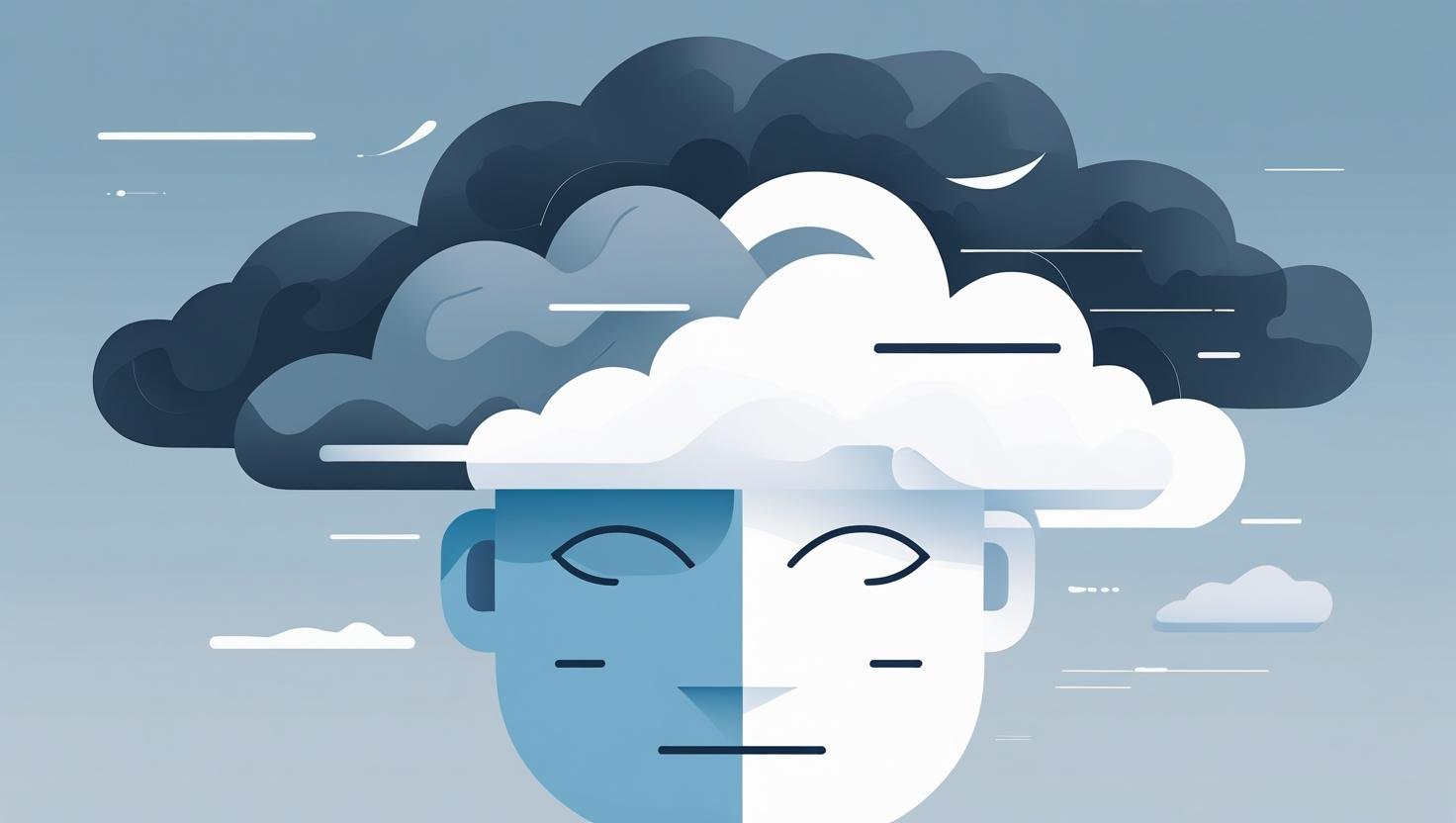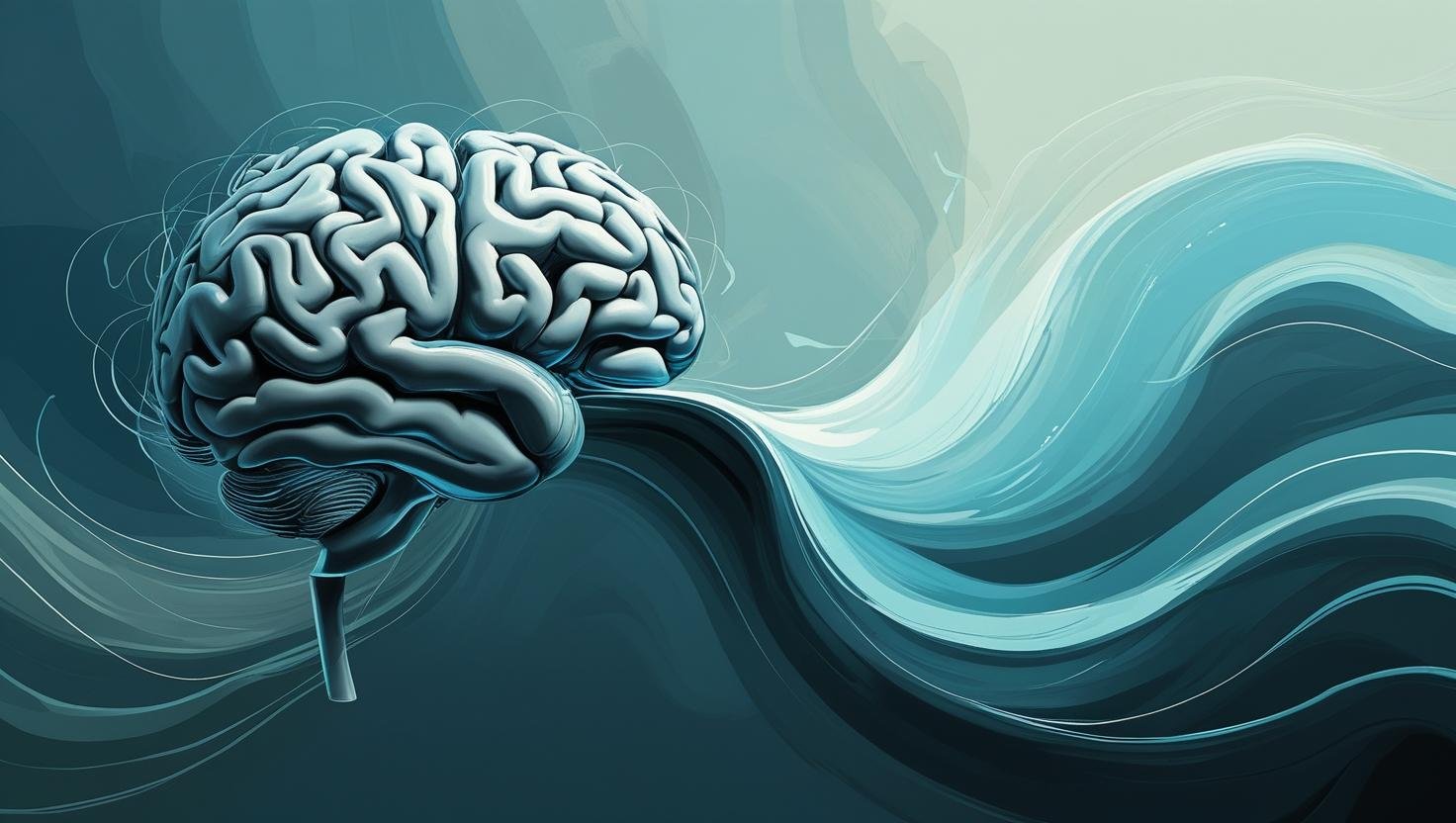Anxiety is the Enemy by Nick Trenton: How to Overcome Fear and Reclaim Your Peace
Anxiety is the enemy is a silent adversary that affects millions worldwide, often hidden beneath smiles and daily routines. In his insightful book Anxiety is the Enemy, Nick Trenton unveils how anxiety, though common, can be challenged and overcome through mindset, discipline, and practical strategies. This post dives deep into the core messages of Trenton’s work, unpacking the psychology behind anxiety, and offering actionable steps to defeat this invisible enemy.
This blog is a guide for anyone who truly believes that anxiety is the enemy of personal growth and happiness.

Table of Contents
- Introduction: Why Anxiety Is the Enemy
- Understanding Anxiety: The Root Cause
- Nick Trenton’s Philosophy: Fear vs. Anxiety
- The Physical and Mental Impact of Anxiety
- Identifying Anxiety Triggers
- The Role of Mindfulness and Meditation
- Practical Strategies from Anxiety is the Enemy
- The Power of Routine and Discipline
- Cognitive Behavioral Techniques to Combat Anxiety
- The Importance of Self-Compassion
- Using Journaling to Track and Manage Anxiety
- Building Resilience and Emotional Strength
- How Exercise and Nutrition Influence Anxiety
- Managing Social Anxiety and Fear of Judgement
- Overcoming Anxiety at Work and in Relationships
- The Role of Professional Help: Therapy and Medication
- Inspiring Success Stories from Readers
- Common Misconceptions About Anxiety
- Daily Affirmations and Positive Self-Talk
- How to Support a Loved One with Anxiety
- FAQs on Anxiety and How to Overcome It
- Conclusion: Reclaiming Your Peace
1. Introduction: Why Anxiety Is the Enemy
Anxiety is more than just feeling worried or stressed; it’s a persistent mental state that can derail our happiness, health, and productivity. Nick Trenton’s Anxiety is the Enemy identifies anxiety as a major obstacle to achieving personal fulfillment. The book encourages readers to recognize anxiety not as an inherent weakness, but as an enemy—because anxiety is the enemy of peace and productivity.
What makes anxiety such a formidable enemy? Because it often hides behind everyday fears and worries, anxiety quietly controls decisions, limits opportunities, and drains energy. Recognizing it as an enemy is the first step toward regaining control.

2. Understanding Anxiety: The Root Cause
Anxiety often stems from a fight-or-flight response gone haywire, where the brain perceives danger even when none exists. Evolutionarily, this mechanism was vital for survival, but in modern times, it can become overactive due to stress, trauma, or negative thought patterns.
According to Trenton, anxiety arises when we overestimate threats and underestimate our ability to handle challenges. This misalignment creates a constant state of fear that saps joy and peace.
3. Nick Trenton’s Philosophy: Fear vs. Anxiety
Trenton distinguishes between fear and anxiety:
- Fear is an immediate, short-term response to a real threat.
- Anxiety is a prolonged, often irrational, worry about potential threats.
Understanding this difference empowers us to respond appropriately rather than react impulsively.
4. The Physical and Mental Impact of Anxiety
Chronic anxiety impacts both mind and body:
- Elevated heart rate
- Muscle tension
- Digestive issues
- Difficulty concentrating
- Sleep disturbances
- Irritability
Trenton stresses that acknowledging these symptoms is crucial for taking corrective action rather than ignoring or suppressing anxiety.

5. Identifying Anxiety Triggers
Anxiety triggers vary from person to person. Common triggers include:
- Work pressure
- Financial concerns
- Social interactions
- Past trauma
- Uncertainty about the future
By identifying triggers, you can develop tailored coping strategies.
6. The Role of Mindfulness and Meditation
Mindfulness practices and meditation are cornerstone tools recommended by Trenton. They train the mind to observe thoughts without judgment, reducing the automatic spiral of anxious thinking.
Simple breathing exercises and guided meditations can calm the nervous system and restore balance.

7. Practical Strategies from Anxiety is the Enemy
Nick Trenton offers several hands-on strategies that reinforce the central theme that anxiety is the enemy we must disarm with practical tools and deliberate routines. These include:
- Deep breathing techniques
- Progressive muscle relaxation
- Grounding exercises
- Visualization of calm scenarios
- Limiting caffeine and sugar intake
Each of these acts as a tactical response to a mental battlefield where anxiety is the enemy we must defeat every day.
8. The Power of Routine and Discipline
Routine brings predictability and control, which counters anxiety’s uncertainty. Trenton advocates creating daily rituals like morning journaling, regular exercise, and scheduled downtime.
Discipline in maintaining routines strengthens resilience against anxious thoughts.
9. Cognitive Behavioral Techniques to Combat Anxiety
CBT techniques such as cognitive restructuring help challenge and change negative thought patterns. Trenton highlights the importance of questioning anxious thoughts and replacing them with evidence-based, realistic ones.
10. The Importance of Self-Compassion
Anxiety often fuels harsh self-criticism. Trenton emphasizes self-compassion—treating yourself with kindness during difficult moments—as vital to healing.
11. Using Journaling to Track and Manage Anxiety
Writing down thoughts and feelings helps externalize anxiety and spot patterns. Trenton recommends daily journaling prompts focused on gratitude, achievements, and fears.
12. Building Resilience and Emotional Strength
Resilience enables you to bounce back from anxiety-provoking situations. Trenton suggests embracing challenges as growth opportunities.
13. How Exercise and Nutrition Influence Anxiety
Physical health strongly impacts mental health. Exercise releases endorphins that naturally reduce anxiety. Balanced nutrition supports brain health.
14. Managing Social Anxiety and Fear of Judgement
Trenton offers practical advice on handling social anxiety, such as exposure therapy and positive affirmations, helping readers face social situations with confidence.
15. Overcoming Anxiety at Work and in Relationships
Anxiety can strain professional and personal relationships. Communication, setting boundaries, and stress management are key tools to maintain healthy connections.
16. The Role of Professional Help: Therapy and Medication
While self-help strategies are powerful, professional therapy and medication can be essential for severe anxiety. Trenton encourages removing stigma around seeking help.
17. Inspiring Success Stories from Readers
Many readers have transformed their lives by applying Trenton’s principles, sharing stories of renewed confidence, reduced panic attacks, and improved quality of life.
18. Common Misconceptions About Anxiety
Myths such as “anxiety is a sign of weakness” or “you can just snap out of it” are debunked, promoting a compassionate understanding.
19. Daily Affirmations and Positive Self-Talk
Trenton encourages crafting affirmations like “I am safe,” “I can handle this,” and repeating them regularly to rewire anxious thinking.
20. How to Support a Loved One with Anxiety
Understanding, patience, and encouragement go a long way. Trenton outlines how to listen actively and avoid minimizing feelings.
21. Advanced Techniques: Exposure, Habit Loops, and Acceptance
Nick Trenton goes further to explain advanced strategies that go beyond daily mindfulness and basic CBT. Three of these techniques—exposure therapy, habit loop reprogramming, and acceptance commitment therapy (ACT)—stand out as game-changers for persistent anxiety. Each of these methods recognizes one unshakable truth: anxiety is the enemy, and it must be tackled with courage, patience, and precision.
Exposure Therapy
This involves gradually exposing yourself to feared situations in a safe and controlled manner. Trenton suggests starting small—perhaps initiating a brief conversation with a stranger if you fear social situations. Over time, your brain recalibrates its perceived threats and reduces its anxious response. Avoidance only strengthens anxiety; facing fears reduces it.
Breaking Habit Loops
Anxiety can become habitual. Trenton draws on neuroscience to show how the brain forms loops of trigger-behavior-reward. For example, stress at work (trigger) leads to excessive worry (behavior) which provides a false sense of preparedness (reward). Identifying and breaking these loops is key to transformation.
Trenton advises substituting worry with grounding rituals, physical movement, or journaling. By interrupting the pattern and choosing new behaviors, the brain rewires itself for calmness.
Acceptance Commitment Therapy (ACT)
ACT helps individuals learn to accept what they cannot control while committing to actions aligned with their values. Rather than fighting anxiety, ACT encourages acknowledgment of its presence without letting it dictate your choices.
This shift in focus—from eliminating anxiety to living meaningfully despite it—can be liberating. Trenton suggests creating a personal mission statement to guide your responses to anxiety, anchoring you in purpose and clarity.
Bonus Tips: Environmental and Digital Detox
Our surroundings significantly influence anxiety levels. Trenton recommends optimizing your physical and digital environment to support mental peace—especially because in the battle of the mind, anxiety is the enemy lurking in overstimulation and disorder.
Declutter Your Space
A cluttered space reflects and reinforces a cluttered mind. Spend 10-15 minutes a day organizing your environment—your bedroom, workspace, or phone apps. Simplicity reduces overstimulation.
Practice Digital Boundaries
Smartphones and social media are anxiety amplifiers. Trenton encourages:
- Turning off notifications
- Setting screen time limits
- Unfollowing toxic accounts
- Scheduling offline hours daily
These small acts restore control and reduce information overload.
Connect with Nature
Spending time in natural environments can significantly lower cortisol levels and improve mood. A walk in the park or time spent in sunlight can reset your internal rhythms and ease anxiety.
Sustaining Your Progress Long-Term
One of the most important insights from Anxiety is the Enemy is the idea that recovery and progress are ongoing processes. Nick Trenton highlights that managing anxiety isn’t about achieving a single victory—it’s about cultivating resilience through continuous effort.
This long-term resilience is possible only when you accept that anxiety is the enemy, not you. When you treat it as an opponent rather than your identity, healing begins.
Develop a Personalized Anxiety Recovery Plan
Trenton encourages readers to craft a customized roadmap tailored to their unique anxiety triggers and lifestyle. This includes:
- A weekly journaling habit to reflect on triggers and progress
- A toolbox of calming techniques (breathing, grounding, self-talk)
- Support systems (therapy, friends, community groups)
- Healthy boundaries with work, social media, and toxic relationships
Your recovery plan should evolve with you. As your triggers shift and your emotional capacity increases, so should your strategies.
Make Mindfulness a Lifestyle, Not a Task
Mindfulness isn’t just a momentary exercise—it’s a way of living. Trenton explains how cultivating moment-to-moment awareness can help disrupt anxiety spirals. Some long-term mindfulness practices include:
- Starting the day with mindful breathing
- Doing one task at a time with full focus
- Being fully present in conversations
- Checking in with your body and emotions throughout the day
These routines help anchor you in the present and build a habit of emotional awareness that is key to managing anxiety.

Monitor Internal Dialogue and Language
Language shapes experience. The way you talk to yourself impacts how anxiety manifests in your body. Trenton emphasizes replacing catastrophic thinking with rational and kind statements. For instance:
- Instead of “I can’t handle this,” try “I’ll do my best in this moment.”
- Instead of “I always mess up,” try “I’ve made mistakes, but I learn and grow.”
Affirmations, gratitude practices, and narrative reframing can all transform internal dialogue into a source of strength rather than anxiety.
Establish Meaningful Goals
Purpose is a powerful antidote to anxiety. When you’re deeply engaged in a pursuit that matters, your focus shifts from internal distress to external contribution. Trenton recommends:
- Setting realistic short- and long-term goals
- Pursuing hobbies and passions regularly
- Volunteering or helping others
Living with purpose can provide stability when anxiety threatens to throw you off course. Your mission gives your days meaning, reducing existential anxiety.
Track Your Wins and Setbacks
Recovery from anxiety isn’t linear. There will be days you regress—and that’s okay. What matters is not perfection but persistence. Keep a record of both your successes and your struggles.
Trenton advises reviewing this log every month to identify patterns, celebrate improvements, and spot areas that need attention. Tracking builds emotional intelligence and self-compassion.
Build Community and Connection
One of the most overlooked anxiety-reduction tools is connection. Isolation is anxiety’s ally, but community can be its cure. Whether it’s a support group, close friends, or an online forum, find your tribe.
As Nick Trenton notes, knowing you’re not alone—hearing others’ stories and being vulnerable yourself—creates a sense of belonging that’s crucial for long-term peace.
Regularly Revisit Core Lessons from Anxiety is the Enemy
Make the book your companion. Re-read sections when anxiety resurfaces. Reflect on past breakthroughs. Highlight quotes that resonate and return to them when needed.
This book isn’t just a read—it’s a toolkit. Let it be a reference you turn to regularly.
22. FAQs on Anxiety and How to Overcome It
Q1: What is the difference between anxiety and stress?
A1: Stress is a response to external pressures; anxiety is more persistent and can occur without clear triggers.
Q2: Can anxiety be cured?
A2: While some experience complete relief, many learn to manage anxiety effectively through ongoing strategies.
Q3: Is medication necessary?
A3: Medication can help but isn’t mandatory for everyone. Therapy and lifestyle changes are also effective.
Q4: How long does it take to overcome anxiety?
A4: It varies; consistent practice of coping techniques speeds recovery.
Q5: Can mindfulness really reduce anxiety?
A5: Yes, mindfulness reduces rumination and calms the nervous system.
Q6: What if anxiety returns after improvement?
A6: Setbacks are natural. Instead of viewing them as failures, treat them as signals to revisit your tools and routines.
Q7: Is anxiety always bad?
A7: Not necessarily. In small doses, it can motivate and focus you. The goal is to manage it, not eliminate it entirely.
23. Conclusion: Reclaiming Your Peace
Anxiety is the Enemy by Nick Trenton offers a compassionate yet practical guide to understanding and overcoming anxiety. With the right tools, mindset, and support, anxiety doesn’t have to control your life. Reclaim your peace by recognizing anxiety as the enemy — one you can defeat with courage, awareness, and action.
As you apply these strategies, remember: healing is not linear. Some days will be harder than others. But with daily commitment, your progress will compound. Your ability to live freely, speak boldly, and rest deeply will strengthen. Let Nick Trenton’s words serve as a light in your journey to a calmer, more courageous life.
Let this be the beginning of your transformation. Even if anxiety has been your companion for years, it doesn’t have to be your destiny. Take the first step. Reclaim your identity, your courage, and your joy. Anxiety is the enemy—but you are the hero.
Final Reflection: Why “Anxiety Is the Enemy” Should Be on Everyone’s Shelf
In today’s fast-paced world, the importance of mental well-being cannot be overstated. Anxiety is the Enemy by Nick Trenton doesn’t just present a theory—it delivers a step-by-step roadmap for those struggling with anxiety and those who wish to support loved ones through it. The book emphasizes that understanding anxiety is the first move toward healing it. Trenton’s voice is not only compassionate but empowering, reminding us that anxiety, though loud and persistent, is not unbeatable.
The keyword anxiety is the enemy stands not just as a title but a profound truth. It captures the adversarial nature of anxiety and transforms it into a battle we can win with knowledge, practice, and purpose. Every technique, from journaling to affirmations, mindfulness to reframing, is tailored to slowly but surely take the power back from anxiety’s grip.
Even if you’ve read countless books on anxiety, Anxiety is the Enemy stands out because of its clarity, relatability, and emotional intelligence. It’s a gentle yet firm push toward action—a reminder that you are not your anxiety. You are the awareness beneath it, the courage within it, and the resilience beyond it.
By revisiting the core idea again and again—that anxiety is the enemy—Nick Trenton empowers readers to reframe their struggles as challenges that can be met with tools, strength, and support.
In closing, never forget—anxiety is the enemy, but the tools to defeat it are already within your reach.
Thank you for reading this in-depth review and guide on Anxiety is the Enemy by Nick Trenton. For more insightful reviews and self-help resources, visit ShubhanshuInsights.com.